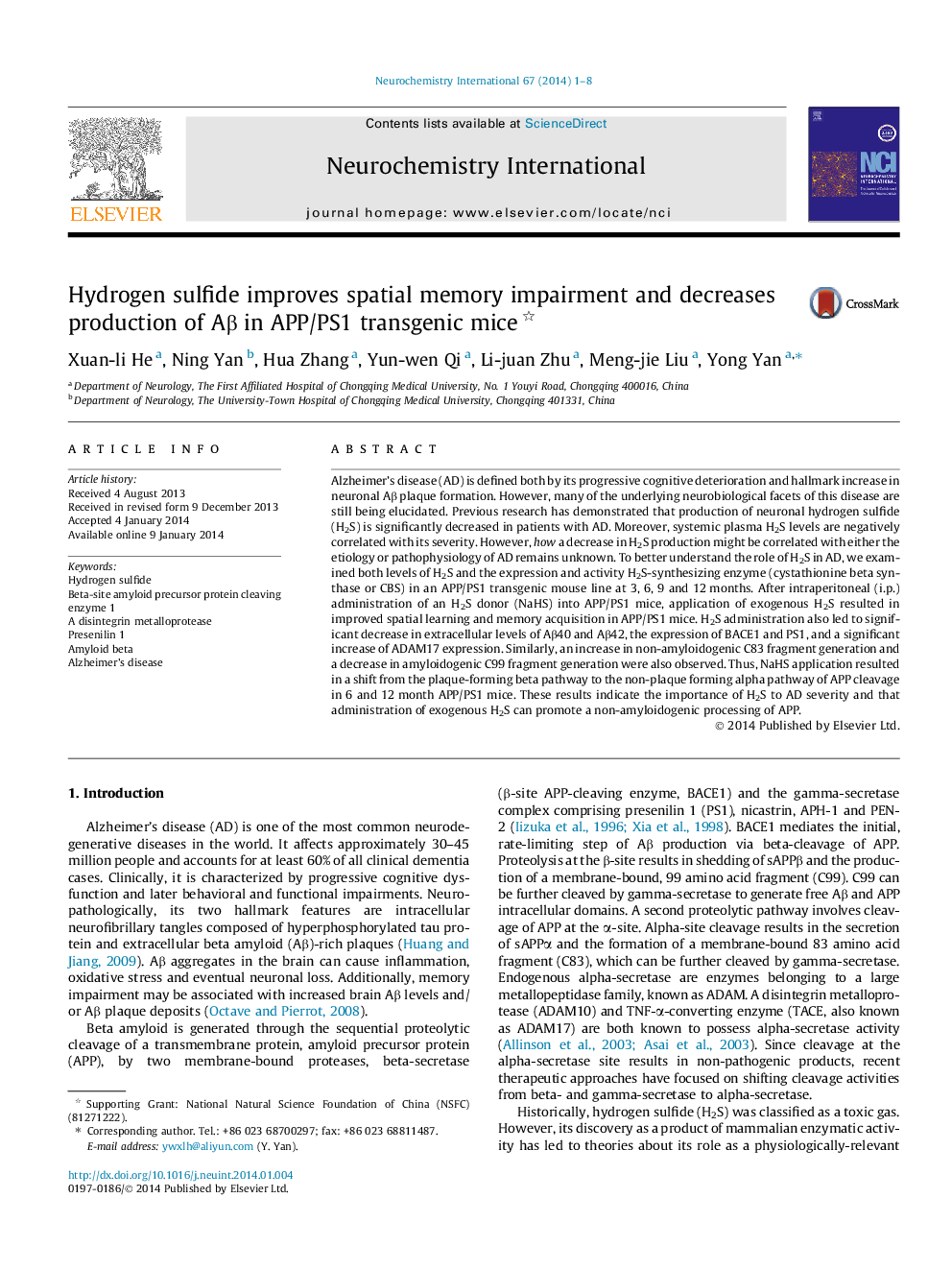| کد مقاله | کد نشریه | سال انتشار | مقاله انگلیسی | نسخه تمام متن |
|---|---|---|---|---|
| 2200599 | 1551306 | 2014 | 8 صفحه PDF | دانلود رایگان |

• Significant deceased H2S level and CBS expression were found at 9 and 12 months in APP/PS1 transgenic mouse.
• Application of exogenous H2S resulted in improved spatial learning and memory acquisition in APP/PS1 transgenic mouse.
• H2S administration could lead to significant decrease of extracellular level of Aβ40 and Aβ42.
Alzheimer’s disease (AD) is defined both by its progressive cognitive deterioration and hallmark increase in neuronal Aβ plaque formation. However, many of the underlying neurobiological facets of this disease are still being elucidated. Previous research has demonstrated that production of neuronal hydrogen sulfide (H2S) is significantly decreased in patients with AD. Moreover, systemic plasma H2S levels are negatively correlated with its severity. However, how a decrease in H2S production might be correlated with either the etiology or pathophysiology of AD remains unknown. To better understand the role of H2S in AD, we examined both levels of H2S and the expression and activity H2S-synthesizing enzyme (cystathionine beta synthase or CBS) in an APP/PS1 transgenic mouse line at 3, 6, 9 and 12 months. After intraperitoneal (i.p.) administration of an H2S donor (NaHS) into APP/PS1 mice, application of exogenous H2S resulted in improved spatial learning and memory acquisition in APP/PS1 mice. H2S administration also led to significant decrease in extracellular levels of Aβ40 and Aβ42, the expression of BACE1 and PS1, and a significant increase of ADAM17 expression. Similarly, an increase in non-amyloidogenic C83 fragment generation and a decrease in amyloidogenic C99 fragment generation were also observed. Thus, NaHS application resulted in a shift from the plaque-forming beta pathway to the non-plaque forming alpha pathway of APP cleavage in 6 and 12 month APP/PS1 mice. These results indicate the importance of H2S to AD severity and that administration of exogenous H2S can promote a non-amyloidogenic processing of APP.
Journal: Neurochemistry International - Volume 67, February 2014, Pages 1–8